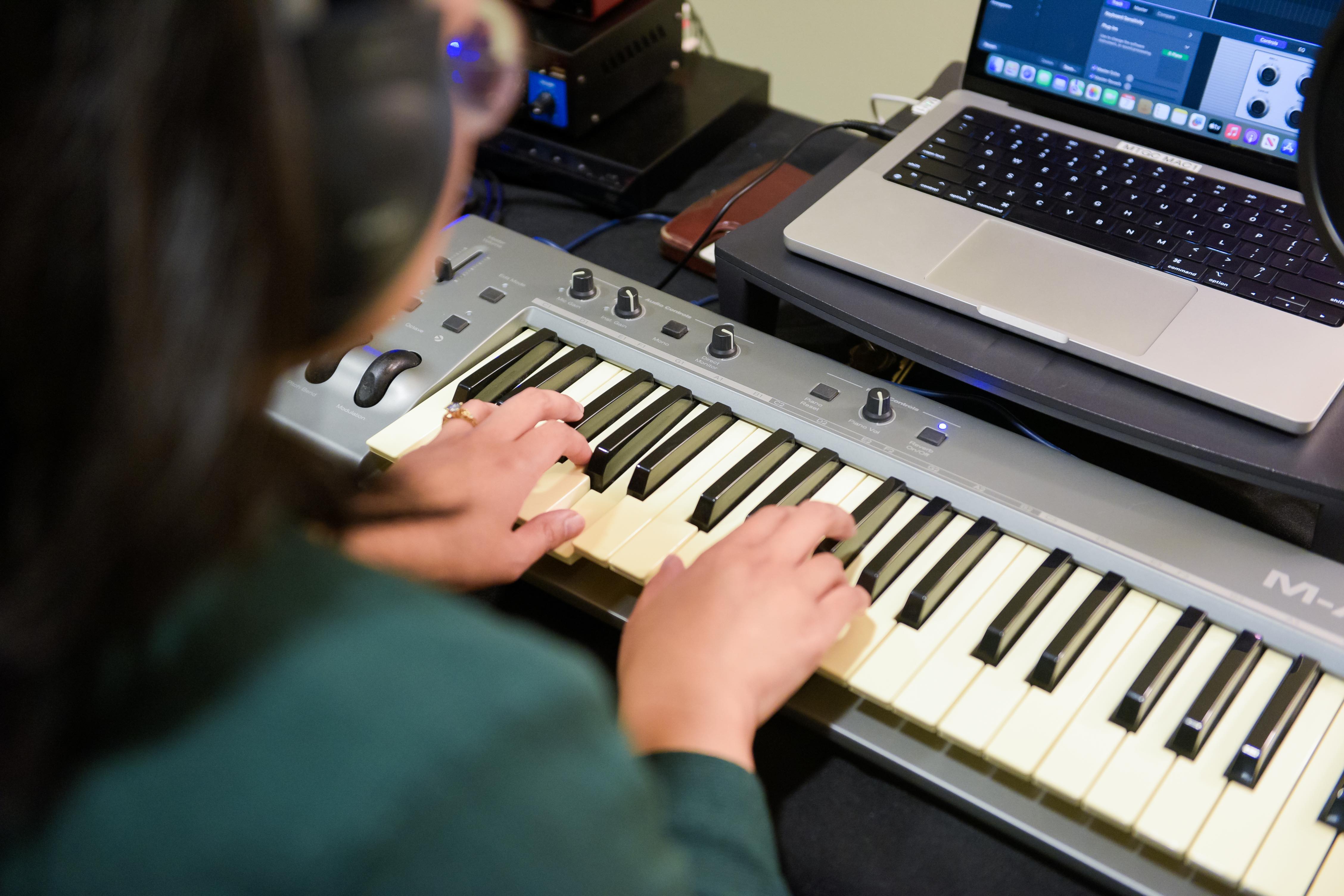Music Therapy: Students share healing power of music
B ob Marley is quoted as saying, “One good thing about music, when it hits you, you feel no pain.” Billy Joel said, “Music in itself is healing.” And Jimi Hendrix was certain, “If there is something to be changed in this world, then it can only happen through music.”
Students work with elderly adults in five assistant living facilities in Baldwin County, including the Cottages of Milledgeville at Woodland Terrace, Green Acres Health & Rehabilitation and Georgia War Veterans Home. They serve people experiencing depression, grief, stress, family issues, loneliness, isolation and dementia.
Music therapy students also assisted other organizations, like Montessori Academy and Life Enrichment Center in Milledgeville and Georgia Academy for the Blind in Macon.
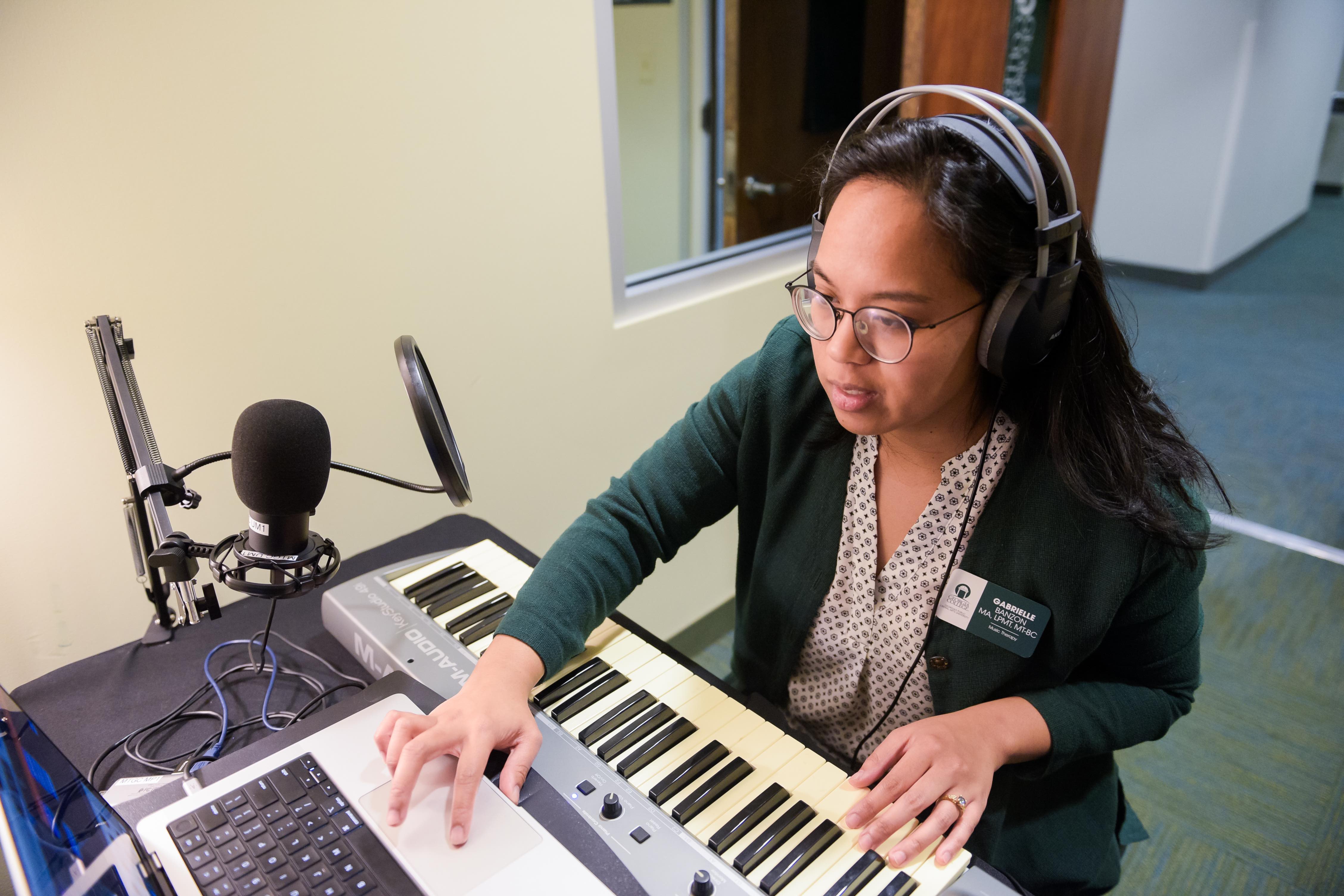
Through it, Georgia College students also work in Baldwin County’s K-12 special education program.
Music therapy helps elementary, middle and high school students with developmental concerns, physical impairments and learning challenges. This program, contracted through Baldwin County Schools, was started in 2016 by Katie Whipple, program coordinator for Georgia College’s undergraduate Music Therapy program.
The program has expanded to provide eight weekly sessions to about 80 K-12 students in the county’s classes for exceptional children. Groups range anywhere from a few children to about 20 at schools like Midway Hills Primary, Lakeview Academy and Oak Hill Middle School.
This semester alone, Georgia College Music Therapy students provided 700 service hours in the community.
Thanks to a Student Technology Fee grant this semester, Banzon was able to add more technology in student therapeutic work. The $500 funded assistive technologies like microphones, MIDI keyboards, USB adapters, Bluetooth speakers and iPad apps.
Tech is used in therapy sessions and for creating adapted track music for performances.
“We support what they're learning in classes and help them transfer everything they're learning in classes into real-world applications,” Banzon said.
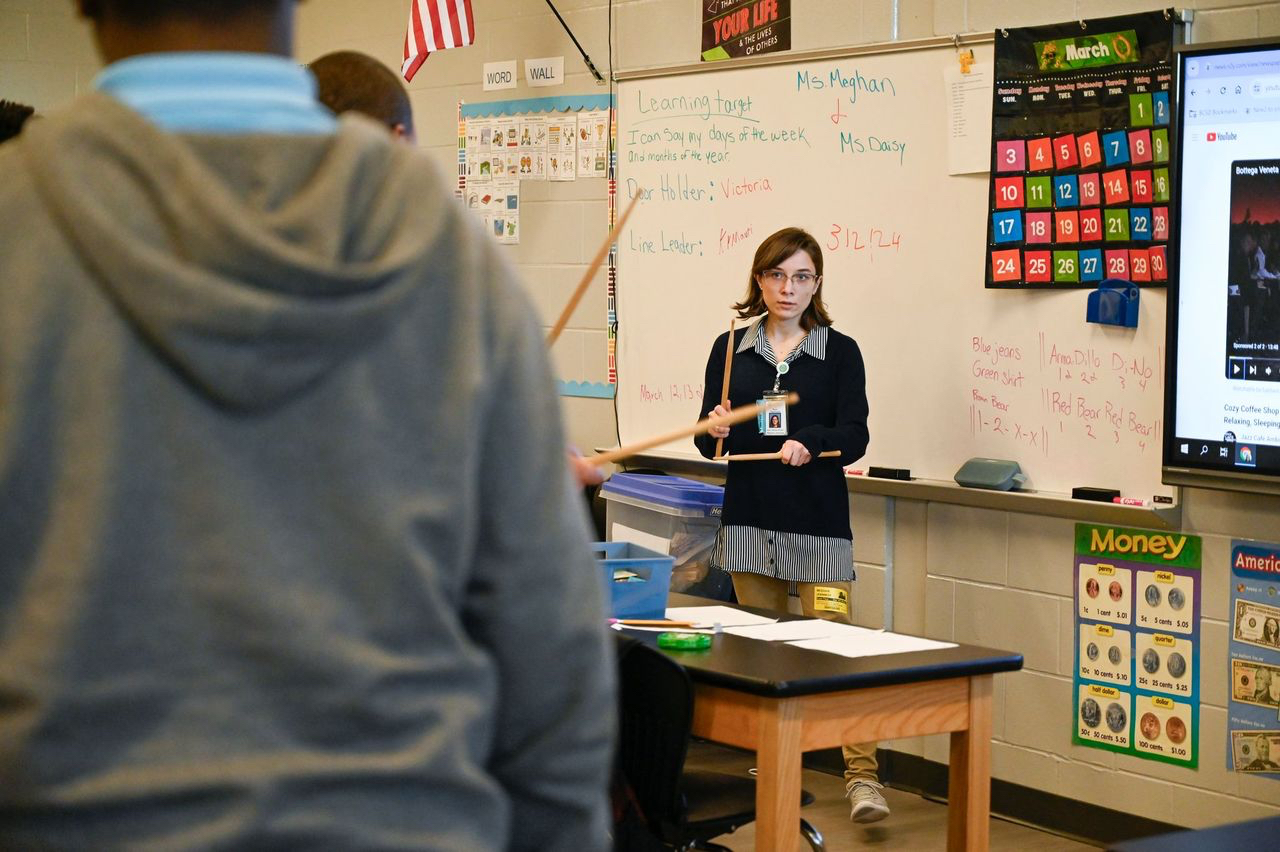
The school music therapy program ends each spring with a collaborative performance, showcasing music, songs and instruments used during the semester. The concert coordinated nicely this year with World Music Therapy Week, held in April. The concert, called “Jungle Jukebox,” was held at Oak Hill Middle School.
At the clinic, Banzon also sees clients from Middle Georgia. She has instruments for them to play, special lighting effects and a vibrating music chair.
Banzon also teaches three courses a semester and helps students plan therapy lessons. She oversees their use of music to increase listening, communication and social interaction. Students learn to keep track of progress reports.
Two graduate students—Meghan Jennings of Suwanee, Georgia, and Daisy Gates of Miami, Florida—met with clients every week in Baldwin County schools this spring.
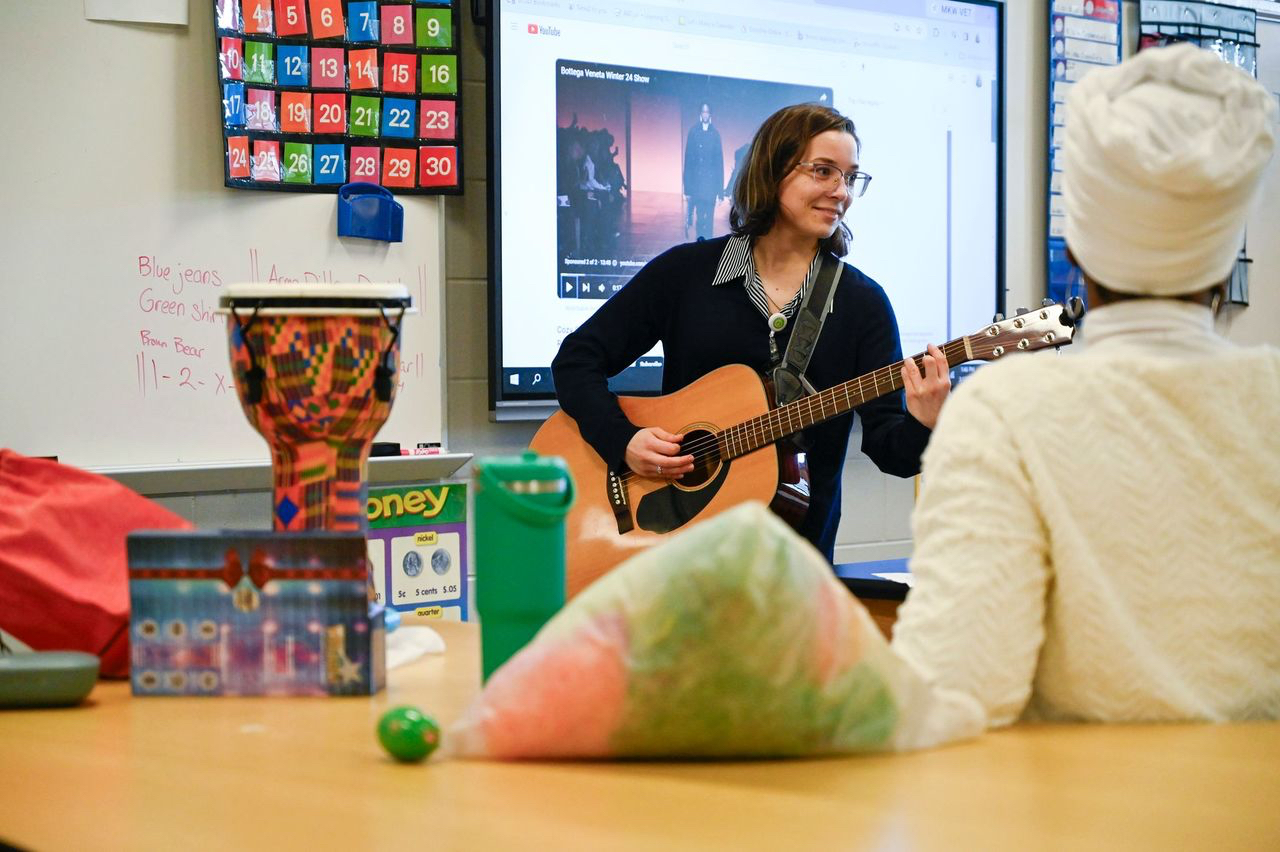
As an undergraduate, Jennings worked with preschoolers at St. Stephen’s Day School, with kids of all ages at the Boys and Girls Club in Baldwin and Jones counties and with adults who have intellectual and developmental disorders at LEC.
During her six-month internship at Central State Hospital, she also worked with patients in psychiatric crisis.
“To date, that has been my favorite population to work with,” Jennings said, “because I got to see how powerful music can be for people who need an outlet to express what they truly feel in the most authentic way.”
“Working in forensic psych opened up a new door for me,” she said, “because I honestly did not expect to love it as much as I did.”
Gradually, he made eye contact and started singing. Playing helped him “focus on the music, not the voices,” he told her.
This year, Jennings led musical interventions in three Baldwin County classrooms. This involved creative lesson planning based on skills her clients needed. Music helps with things like impulse control, conversation, eye contact, decision making, emotion identification, memory retention, creative thinking and following directions.
Each lesson begins with a greeting song, followed by high-energy activity like movement to music, freeze dances and instrument play alongs. The group works on basic skills, and there’s a cool-down period with calming music and stretching.
Music therapy students play multiple instruments. Jennings plays the trumpet, guitar, piano, drums, ukulele, accordion and recorder.
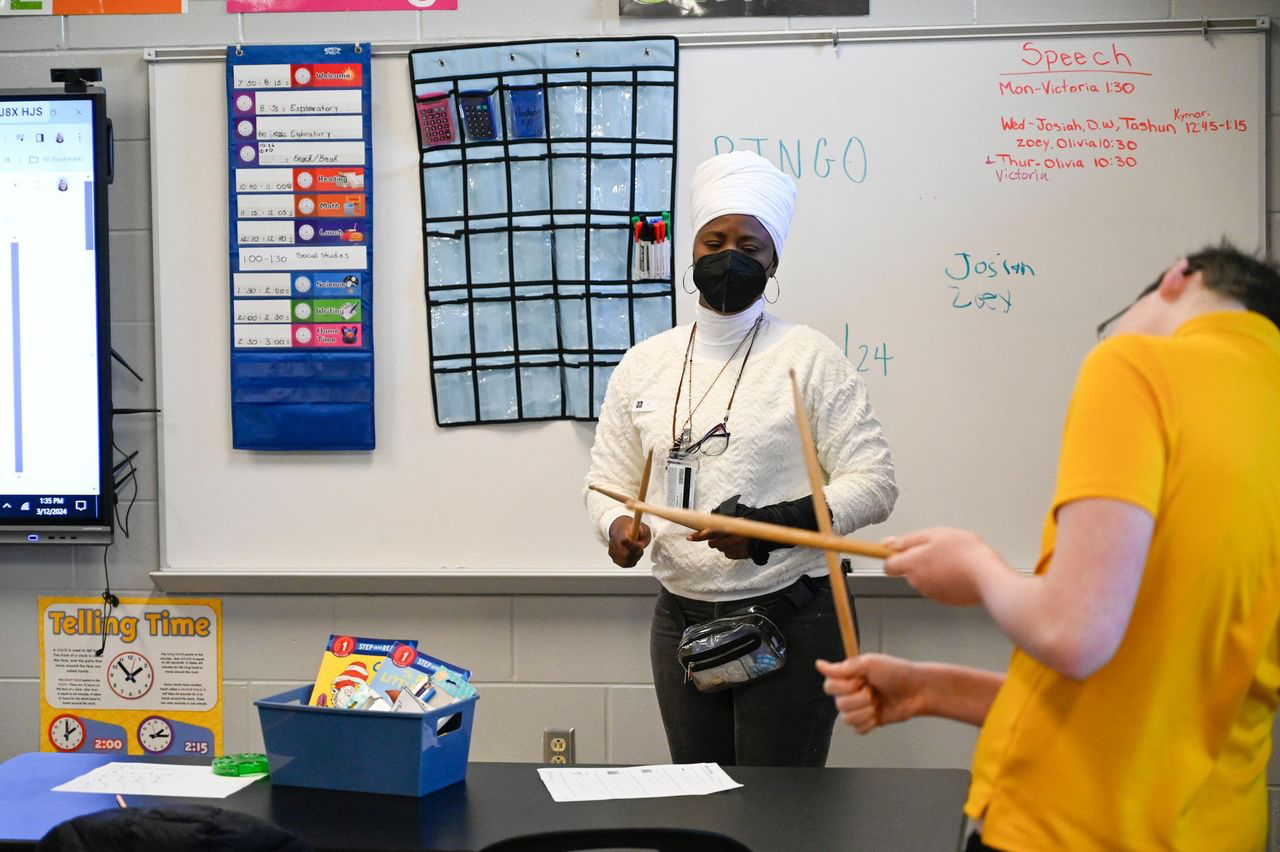
Early in her master’s program, Gates mostly observes. But she also helps execute lessons and interacts with clients. She got her bachelor’s in popular music at Florida Memorial University and a master’s in music education from Florida International University.
She plays the violin, viola, cello, drums, xylophone, marimba, recorder, didgeridoo, guitar and piano.
Gates was drawn to music therapy as “a new path in my journey beyond the classroom.”
“I saw music therapy as a powerful avenue to connect with individuals on a deeper level,” Gates said. “I also want to be a representation for my community by shedding light on this impactful career and inspire others to explore this avenue of healing and community service through music.”
In addition to what Georgia College’s Music Therapy program already offers—which includes summer music therapy camps—Banzon hopes to provide more in the future. She’d like to start an all-inclusive rock band for underserved teens of all abilities and develop teletherapy sessions on Zoom for clients who can’t travel.
A group therapy session might be added to clinic offerings, along with a new partnership with Atrium Health Navicent in Macon. This will solidify an already-strong program, giving students more ways to practice job-ready skills. All aspects of the program help students for careers in private practices, psych hospital units, nursing homes and schools.
